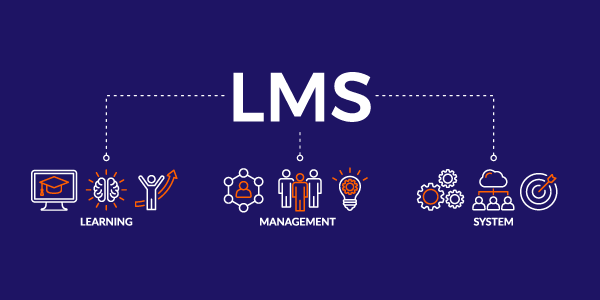In today’s world of digital education, having the right Learning Management System (LMS) can make all the difference. But for small institutes and individual teachers, premium LMS platforms often come with a hefty price tag.
Fortunately, there are several free LMS platforms that offer powerful tools for managing courses, tracking student progress, and creating engaging learning experiences — without spending a dime.
In this guide, we’ll explore the best free LMS platforms for teachers and small institutes, focusing on usability, features, and how each platform supports effective teaching and learning.
1. Moodle — The Most Popular Open-Source LMS
Moodle is one of the most widely used free LMS platforms worldwide. It’s open-source, meaning you can customize it to suit your institute’s needs.
Key Features:
- Fully customizable with plugins and themes
- Supports quizzes, assignments, grading, and forums
- Mobile-friendly interface
- Strong global community support
Why It’s Great for Small Institutes:
Moodle is perfect for those who want complete control over their learning environment without licensing costs. Teachers can host it on their own server or use MoodleCloud for a managed experience.
2. Google Classroom — Simple and Easy for Teachers
Google Classroom is a favorite among teachers looking for simplicity and integration. It’s free, cloud-based, and syncs seamlessly with Google Workspace tools.
Key Features:
- Integrates with Google Docs, Drive, and Meet
- Easy assignment distribution and grading
- Works perfectly for remote or hybrid learning
- No installation needed
Why It’s Ideal for Teachers:
If you’re already using Gmail or Google Docs, Google Classroom is a natural fit. It helps teachers manage classes with minimal technical setup.
3. Canvas LMS — Professional and Scalable
Canvas offers a free plan called Canvas Free-for-Teacher, which allows individual educators to create and manage online courses.
Key Features:
- Clean and modern user interface
- Multimedia support for video lessons
- Student analytics and progress tracking
- Compatible with SCORM content
Why It’s Suitable for Small Institutes:
Canvas provides the sophistication of an enterprise LMS while remaining accessible to small teams through its free plan.
4. Schoology — Collaboration Meets Learning
Schoology blends LMS functionality with social learning features, making it ideal for teachers who want an interactive classroom experience.
Key Features:
- Social networking-style discussions
- Integrates with Google and Microsoft tools
- Course creation and grading tools
- Parent and student communication options
Why It’s Useful for Small Schools:
Teachers can foster engagement through discussions and collaborative projects while keeping track of student performance in one place.
5. Open edX — Built for Professional-Grade Learning
Open edX is an open-source LMS used by major universities and online course providers. While it may require some technical setup, its capabilities are unmatched.
Key Features:
- Supports massive open online courses (MOOCs)
- Video streaming, quizzes, and certificates
- Detailed learner analytics
- Scalable for growing institutes
Why It’s Best for Growth-Focused Institutes:
If you plan to expand your online offerings, Open edX can handle thousands of learners efficiently.
6. Chamilo — Lightweight and User-Friendly
Chamilo is a lesser-known but powerful open-source LMS designed for simplicity and speed.
Key Features:
- Easy installation and low server requirements
- Built-in course creation tools
- Supports certificates and attendance tracking
- Multilingual support
Why It’s Great for Small Teams:
Chamilo is ideal for small institutes with limited technical resources. It’s easy to use, stable, and requires minimal maintenance.
7. TalentLMS (Free Plan) — Perfect for Quick Startups
TalentLMS offers a free version that’s ideal for small-scale training or classroom use.
Key Features:
- Cloud-based, no installation needed
- Drag-and-drop course builder
- Supports quizzes, certificates, and reporting
- Mobile access through dedicated apps
Why It’s a Great Starting Point:
Small institutes can start with the free version and scale up later as their needs grow.
8. Edmodo — For Interactive Classrooms
Edmodo focuses on connecting teachers, students, and parents in an interactive online space.
Key Features:
- Safe communication platform
- Assignment and grading tools
- Built-in messaging and notifications
- Parent involvement features
Why It Works for Teachers:
It creates a connected community around the classroom, improving collaboration and engagement.
9. Forma LMS — Business-Focused but Free
Forma LMS is designed for corporate and professional training, but small institutes can use it for structured course delivery.
Key Features:
- SCORM compliance
- Certification management
- Reporting and analytics tools
- Multitenant support for multiple departments
Why It’s Unique:
It’s perfect for institutes offering both academic and professional development courses.
10. Thinkific (Free Plan) — For Teachers Building Online Courses
Thinkific allows educators to build and sell courses online. Its free plan is generous enough for small institutes to start.
Key Features:
- Drag-and-drop course builder
- Video hosting included
- Payment integration for monetized courses
- Branded course pages
Why It’s Great for Educators:
If you want to turn your teaching into a small business, Thinkific gives you professional tools for free.
Conclusion
Finding the right free LMS platform depends on your teaching style, technical ability, and long-term goals.
- For simplicity: Google Classroom or TalentLMS.
- For flexibility: Moodle or Canvas.
- For scalability: Open edX or Thinkific.
Each platform listed here can help teachers and small institutes deliver effective online learning — without breaking the budget.
Start exploring one today and build a learning environment that’s engaging, affordable, and future-ready.

